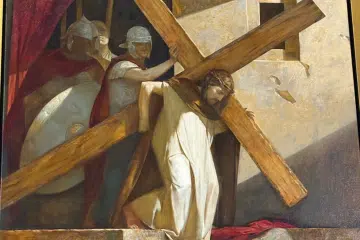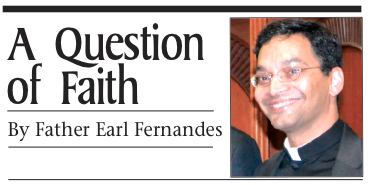Q&A: Do we really need a Year of Mercy?
Dear Father: I hate to sound cynical and tired, but do we really need a Year of Mercy after all the specially designated Years (Jubilee Year, Rosary, Eucharist, St. Paul, Faith, Consecrated Life, etc.) we have had?
Dear Reader: Yes. We need such a year. Recently I attended a talk on Luke’s Gospel by Father Frank Giuffre, Scripture Professor at St. Charles Borromeo Seminary in Philadelphia. He triggered my thoughts about the Year of Mercy, helping me to understand its importance and its timeliness.
The Year of Mercy has significant contributions to make to our faith life and to modern life in general. Throughout the year, on Sundays, we will hear Luke’s Gospel, which wants to show us the tenderness of God. There we find a very dramatic personal witness to the power of forgiveness and compassion, especially in the example of the Good Samaritan and the forgiving and loving father in the portrayal of Prodigal Son.
In each case, a life is turned around, given respect, and hope by the action of someone who understood the meaning of true mercy. These were not necessary gifts by any social standards; rather, they were portrayals of the Father’s love for all His people in a free and gratuitous way. These scriptural passages are given to us so we may see the beauty of doing likewise. The Year of Mercy is an invitation to reflect upon the Mercy of God.
In reflecting on the scriptures and the merciful Father, we hear the words: Go and do likewise. The Year of Mercy is not so much about attending programs but about imaging the compassion of God in the world. The spiritual and corporal works of mercy are very important ways for us to imitate the Lord, learn from the Spirit and worship the Father. By visiting the sick, counseling the doubtful, praying for the living and the dead we open up to others the Father’s compassion and mercy for them in their deep personal needs.
Feeding the hungry, clothing the naked, and caring for the material needs of those who suffer from want and lack in their lives assures those living in poverty and material depravation that the true God sees them, hears their cries and responds to them in times of want and crisis.
There is the temptation to restrict the Year of Mercy to receiving mercy in the sacrament of penance. In John 20, when Jesus sends the disciples as the Father has sent Him, he gives them the Holy Spirit and empowers them to lift the burden of sin from the world. This is not only the establishment of the Sacrament of Reconciliation, but also a mission to all disciples to be forgiving in their personal lives.
How many family quarrels disturb the harmony of family life because someone won’t forgive an imposition or a slight? How many friendships dissolve because one or the other will not forgive? Grudges keep us prisoner and enslave us. God has called us to live in the freedom of the sons and daughters of God. The Year of Mercy invites us to wipe these divisions away and bring reconciliation and peace to our families and communities. The Year invites us to take seriously the petition of the Lord’s Prayer: Forgive us our trespasses as we forgive those who trespass against us.
The Year of Mercy is necessary because it really is about the Christian way of life and the call to be a beacon of light and hope in the troubled circumstances of life. Truly, “in the tender compassion of our God, the dawn from on high has shone upon us.” We may not bring universal peace by our small, personal manifestations of faith and faithfulness, but we can begin the process in the small world around us.
This is the real gift of the Year of Mercy – the challenge us to live the faith even in a violent and turbulent world where hatred and division is everywhere- and to witness to the world that with the Lord, there is mercy and plenteous redemption.
Father Earl Fernandes, the dean of the Athenaeum of Ohio/Mount St. Mary’s Seminary, answers questions about the Catholic faith each month. Send your question for Father Fernandes to Editor-in-Chief Steve Trosley.
This A Question of Faith column also appears in the December 2015 print edition of The Catholic Telegraph.














